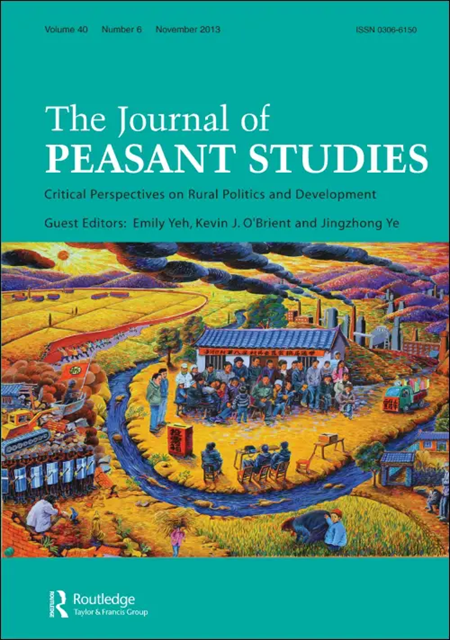Forests lost and found in tropical Latin America: the woodland ‘green revolution’
IF 4.8
1区 社会学
Q1 ANTHROPOLOGY
引用次数: 83
Abstract
Forest dynamics in the Latin American tropics now take directions that no one would have predicted a decade ago. Deforestation in the Brazilian Amazon has dropped by over 80 percent, a pattern mimicked elsewhere in Amazonia, and is down by more than a third in Central America. Forest resurgence – increasing forest cover in inhabited landscapes or abandoned lands – is also expanding. In Latin America, woodland cover is increasing, at least for now, more than it is being lost. These dramatic shifts suggest quite profound and rapid transformations of agrarian worlds, and imply that previous models of understanding small-farmer dynamics merit significant review centering less on field agriculture and more on emergent forest regimes, and in many ways a new, increasingly globalized economic and policy landscape that emphasizes woodlands. This paper analyzes changing deforestation drivers and the implications of forest recovery and wooded landscapes emerging through social pressure, social policy, new government agencies, governance, institutions, ideologies, markets, migration and ‘neo-liberalization’ of nature. These changes include an expanded, but still constrained, arena for new social movements and civil society. These point to significant structural changes, changes in tropical natures, and require reframing of the ‘peasant question’ and the functions of rurality in the twenty-first century in light of forest dynamics.热带拉丁美洲的森林失而复得:林地“绿色革命”
拉丁美洲热带地区的森林动态现在正朝着十年前没有人能预测到的方向发展。巴西亚马逊地区的森林砍伐减少了80%以上,亚马逊其他地区也效仿了这种模式,中美洲的森林砍伐减少了三分之一以上。森林复苏——在有人居住的地区或废弃土地上增加森林覆盖——也在扩大。在拉丁美洲,森林覆盖面积正在增加,至少目前是这样,超过了森林覆盖面积的减少。这些戏剧性的转变表明农业世界发生了相当深刻和迅速的变化,并意味着以前理解小农动态的模型值得进行重大审查,这些模型较少关注田间农业,更多关注新兴的森林制度,以及在许多方面强调林地的新的、日益全球化的经济和政策格局。本文分析了不断变化的森林砍伐驱动因素,以及通过社会压力、社会政策、新的政府机构、治理、机构、意识形态、市场、移民和自然“新自由化”而出现的森林恢复和树木景观的影响。这些变化包括新社会运动和公民社会的舞台扩大了,但仍然受到限制。这些都指向了重大的结构变化,热带自然的变化,并要求根据森林动态重新构建“农民问题”和21世纪农村的功能。
本文章由计算机程序翻译,如有差异,请以英文原文为准。
求助全文
约1分钟内获得全文
求助全文
来源期刊

Journal of Peasant Studies
Multiple-
CiteScore
10.50
自引率
17.60%
发文量
99
期刊介绍:
A leading journal in the field of rural politics and development, The Journal of Peasant Studies (JPS) provokes and promotes critical thinking about social structures, institutions, actors and processes of change in and in relation to the rural world. It fosters inquiry into how agrarian power relations between classes and other social groups are created, understood, contested and transformed. JPS pays special attention to questions of ‘agency’ of marginalized groups in agrarian societies, particularly their autonomy and capacity to interpret – and change – their conditions.
 求助内容:
求助内容: 应助结果提醒方式:
应助结果提醒方式:


